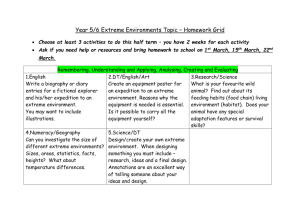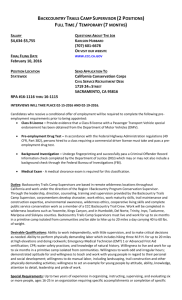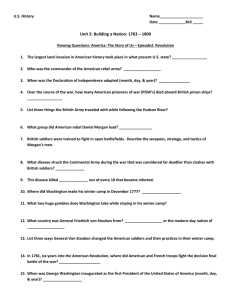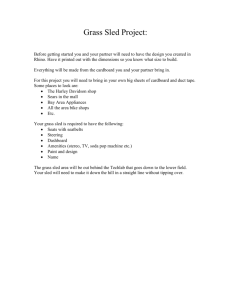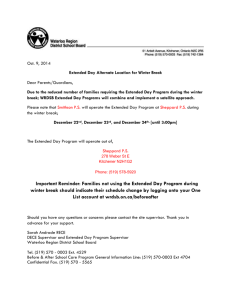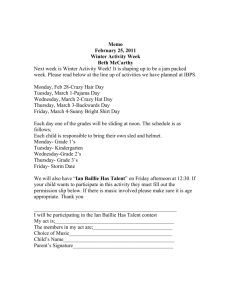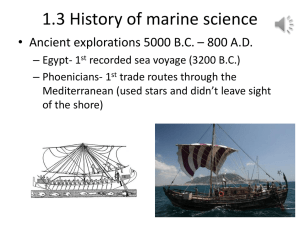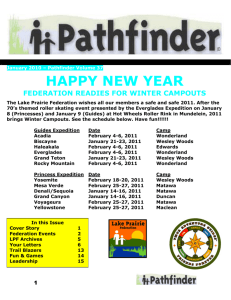OUTWARD BOUND PROFESSIONAL ®
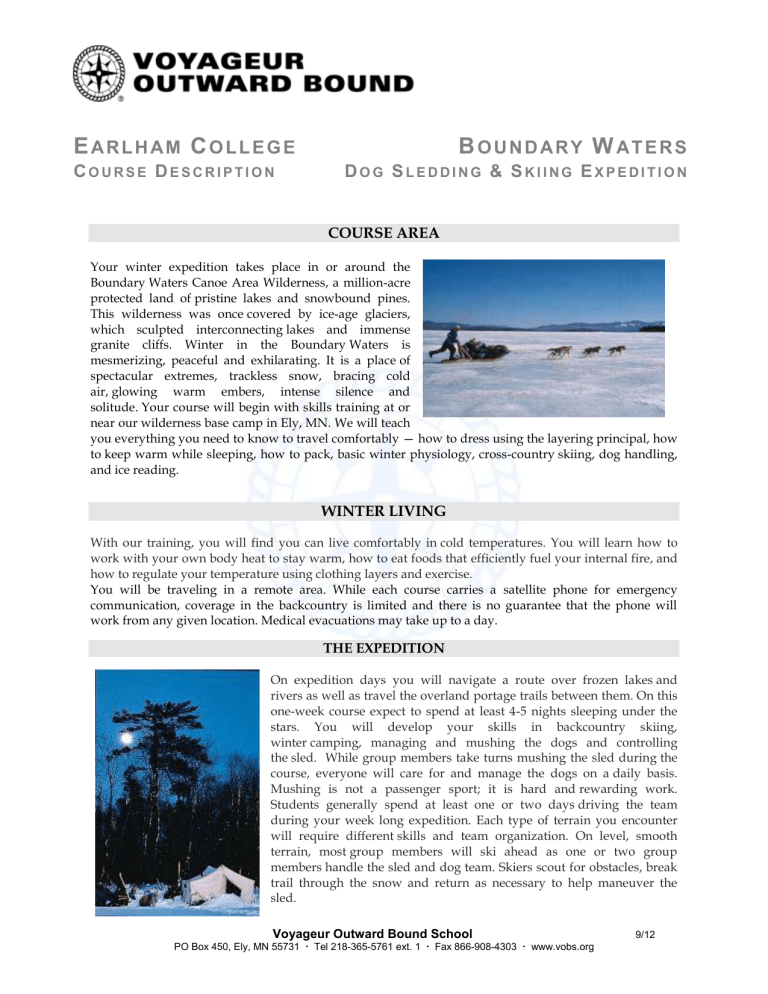
E A R L H A M C O L L E G E
C O U R S E D E S C R I P T I O N
B O U N D A R Y W A T E R S
D O G S L E D D I N G & S K I I N G E X P E D I T I O N
COURSE AREA
Your winter expedition takes place in or around the
Boundary Waters Canoe Area Wilderness, a million-acre protected land of pristine lakes and snowbound pines.
This wilderness was once covered by ice-age glaciers, which sculpted interconnecting lakes and immense granite cliffs. Winter in the Boundary Waters is mesmerizing, peaceful and exhilarating. It is a place of spectacular extremes, trackless snow, bracing cold air, glowing warm embers, intense silence and solitude. Your course will begin with skills training at or near our wilderness base camp in Ely, MN. We will teach you everything you need to know to travel comfortably — how to dress using the layering principal, how to keep warm while sleeping, how to pack, basic winter physiology, cross-country skiing, dog handling, and ice reading.
WINTER LIVING
With our training, you will find you can live comfortably in cold temperatures. You will learn how to work with your own body heat to stay warm, how to eat foods that efficiently fuel your internal fire, and how to regulate your temperature using clothing layers and exercise.
You will be traveling in a remote area. While each course carries a satellite phone for emergency communication, coverage in the backcountry is limited and there is no guarantee that the phone will work from any given location. Medical evacuations may take up to a day.
THE EXPEDITION
On expedition days you will navigate a route over frozen lakes and rivers as well as travel the overland portage trails between them. On this one-week course expect to spend at least 4-5 nights sleeping under the stars. You will develop your skills in backcountry skiing, winter camping, managing and mushing the dogs and controlling the sled. While group members take turns mushing the sled during the course, everyone will care for and manage the dogs on a daily basis.
Mushing is not a passenger sport; it is hard and rewarding work.
Students generally spend at least one or two days driving the team during your week long expedition. Each type of terrain you encounter will require different skills and team organization. On level, smooth terrain, most group members will ski ahead as one or two group members handle the sled and dog team. Skiers scout for obstacles, break trail through the snow and return as necessary to help maneuver the sled.
Voyageur Outward Bound School
PO Box 450, Ely, MN 55731 Tel 218-365-5761 ext. 1 Fax 866-908-4303 www.vobs.org
9/12
On rough areas, your team will help to push, pull, and turn the sled. When traveling on lake ice, navigation and ice reading become the main focus. Time and weather permitting, you will finish your journey with a ski event known as a personal challenge event. It is non competitive; you’ll set your own goals and work toward them. A final celebration completes your course.
Setting up a snug winter camp takes time, energy and teamwork. In the late afternoon, you will look for a sheltered bay with good firewood. As you set up camp, your group will divide duties - caring for the dogs, setting up tarp shelters, and locating, sawing and splitting wood for the evening fire. If the weather is cold, snowy or windy, your group will set up the wall tent and its interior wood stove to keep warm and dry gear.
Everyone will learn to cook tasty and nutritious meals over fires. Our meals are primarily vegetarian (meat is heavy and spoils quickly) and consist of grains, nuts, pasta, beans, cereals and other light, dehydrated foods. The food may seem unfamiliar at first as we don’t pack many processed foods or “junk food” but you will find that it tastes good and gives you energy at the end of a long day. A typical breakfast might be granola or oatmeal; lunch would include tortillas and cheese or peanut butter and jam on biscuits that you bake the previous evening; dinner might be macaroni and cheese or beans and rice. We can accommodate some special food needs (such as lactose intolerance or vegan eaters), but only if we know well in advance. If you have a particularly unusual diet, we may ask you to bring some of your own specialty foods.
A typical day involves rising with the sun, making breakfast, packing up camp and hitting the trail. Once you reach camp, group members will divide and conquer to get food cooked and camp set up. After dinner, you may meet to discuss the next day’s plans before crawling into your sleeping bag for a welldeserved rest.
The instructors’ goal is to teach you the skills required to become self-sufficient in the backcountry. They will spend the early days of the course helping you master backcountry expedition skills while coaching you as you learn. As you grow more competent and confident with your skills, the instructors will ask that you take more responsibility to aid in leading the expedition. Neither guides nor counselors, the instructors are teachers and mentors whose goal it is to train you to travel independently in the backcountry.
FIRST DAY
WHAT TO WEAR ON YOUR FIRST DAY:
Unless your group has arranged to change at Homeplace upon arrival, come to the course start location dressed in clothes that you will wear on the course. Courses are packed with physical activity right from the start so it is important to arrive prepared. We strongly recommend the layering technique and have provided a clothing list included in your enrollment packet.
LUGGAGE:
If you are flying, as a precaution against the airlines losing your irreplaceable items, we STRONGLY
RECOMMEND that you carry or wear things on the plane like prescription medications and contacts or glasses. Please check-in everything else. When you arrive on the course, you will pack your trail gear into
Voyageur Outward Bound School
PO Box 450, Ely, MN 55731 Tel 218-365-5761 ext. 1 Fax 866-908-4303 www.vobs.org
9/12
one of our backpacks. Extra items (airline tickets, money, watches, etc.) and clean clothing can be left in your suitcase, which will be placed in locked gear cage during your course.
COMMUNICATION ON COURSE
Be sure to give us the correct name and telephone number of the person who should be contacted in case of emergency. EMERGENCY CALLS are defined as calls that can’t wait until regular business hours. An example of an emergency call is that you are unable to make it to the course start on time or you have a family emergency while on course. We have a 24-hour answering service, which will facilitate delivery of messages at our basecamp at (218) 365-5761 ext. 1. We will get messages to students as quickly as possible, but sometimes it takes as many as 24 hours to deliver an emergency message. Students will not be able to place or receive calls during the course. Students on this course will not have an opportunity to receive mail due to its length.
Voyageur Outward Bound School
PO Box 450, Ely, MN 55731 Tel 218-365-5761 ext. 1 Fax 866-908-4303 www.vobs.org
9/12
